The Lives Lost to Coronavirus
One of the biggest challenges of this unsettling time is the isolation we feel as we’re separated from friends and family, all the people for whom we care most deeply. But just being alone is only part of the difficulty. Our sense of remoteness is intensified by a pall of unease we can’t define: Loss and sorrow are also in the air. We fear losing—or we may have already lost—people we love. And when we work up the courage to look beyond our individual personal spheres, we see that many people who have made our world better, in big and small ways, have vanished before we were ready to let them go.
But not even sorrow is one-dimensional. There can always be at least a glimmer of joy in remembering things that people gave us while they were here. In his jubilant and revivifying memoir, I Remember, the artist and writer Joe Brainard tabulated all the little things that can come to shape how we think about life. It’s a book of large truths disguised as small ones: “I remember,” he writes, “those times of not knowing if you feel really happy or really sad. (Wet eyes and a high heart.)”
We have no roadmap for this new territory. But we all, at one time or another, have reason to mourn. Maybe we can be better at celebrating life even as we’re saddened by its loss. That’s the goal of this list: to acknowledge the remarkable and joyful lives of some of those we have lost. It’s not comprehensive, nor is it meant to be. These are just some of the people who have been taken from us, even as they have left us much to remember them by. Let’s think of them with wet eyes and a high heart. —Stephanie Zacharek
Lorena Borjas
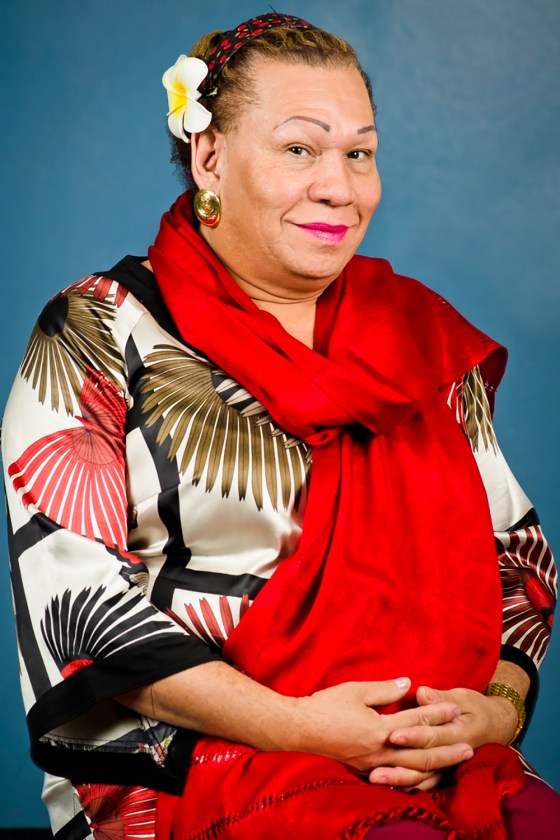
When the coronavirus crisis infiltrated her beloved New York City, Lorena Borjas sprang to action like she always did. In mid-March, the pillar of the city’s trans Latinx community set up a fund to help trans people who had lost their jobs to COVID-19. Yet on March 30, Borjas, 59, lost her own life to complications from the virus.
“Lorena was like a mother for many in the transgender community,” Bianey Garcia, one of many people aided by Borjas over the years, tells TIME. “She used to help anyone.“
Borjas had been a prominent community organizer and health educator for decades, working to end human trafficking, which she herself survived, according to the Transgender Law Center.
Her community health work included an HIV testing site Borjas set up in her own home, and a syringe exchange program for trans women using hormone injections. In 2012, she and activist Chase Strangio co-founded the Lorena Borjas Community Fund, which helped cover bail and pay legal fees for LGBTQ immigrants.
Lynly Egyes, 38, legal director of the Transgender Law Center, tells TIME she first met Borjas while working for the Sex Workers Project at the Urban Justice Center. At the time, Egyes remembers she was representing two incarcerated transgender women; Borjas “just showed up” with a much-needed birth certificate for one of the women, pulling it out of the Mary Poppins-style roller bag she always carried with her. “You never knew what was in there,” Egyes laughed.
“She’s made the world better so selflessly, so humbly, without often any type of recognition,” Egyes added. “I think she taught everyone she knew about how to be a better person.” —Madeleine Carlisle
Floyd Cardoz

When Floyd Cardoz opened Tabla in Manhattan’s Flatiron district in 1998, it was a rarity — a modern Indian restaurant with the creative precision of fine dining yet none of the pretense of a staid tasting restaurant. A place like Tabla asked diners to forget what they thought they knew about Indian cuisine — standard curries, doughy naans — and surrender to new interpretations. A spirit of celebration and warmth was pervasive; Cardoz was both fearless about expectations and passionate about his heritage, combining traditional Indian cooking with American, Italian and French twists and techniques.
The restaurant is now part of his legacy. He died on March 24 due to complications from COVID-19 after returning to New York from a trip abroad in early March. He was 59.
At Tabla, a broad, sweeping wooden staircase welcomed diners to a space that was raucous with noise and fragrant with dishes like his take on a clam pizza, or halibut with watermelon curry. (The main floor even hosted a casual “Bread Bar.”) That was Cardoz’s sweet spot: surprising customers and fellow culinary pioneers like critic Ruth Reichl, business partner Danny Meyer and restaurateur David Chang with dishes that challenged perceptions of what Indian cooking could be.
“He was a super-taster, big-hearted, stubborn as the day is long, and the most loyal friend, husband, and dad you could imagine. My heart is just broken,” Meyer said after his death.
Cardoz, born in 1960 in Mumbai, India, trained partially in Switzerland before landing in the U.S. in 1988. After Tabla, he worked at two more restaurants in New York before launching the cozy, hip downtown spot Paowalla (later reimagined and renamed Bombay Bread Bar) and two destinations in Mumbai. At Paowalla, colorful murals decorated the interior’s brick walls, and dishes like bacon-stuffed naan, masala-spiced popcorn or burrata in daal were meant to be shared, epitomizing his style of open-armed hospitality. (His New York locations are now closed.)
He became a food celebrity after winning Top Chef Masters in 2011, where his Indonesian-style short ribs won the day, and also wrote a popular cookbook in 2016, Flavorwalla, filled with spiced-up riffs on family-friendly classics like chicken soup. His latest venture, the imaginative Bombay Sweet Shop, launched this spring. He leaves behind his wife, two sons, five siblings and a trailblazing culinary legacy. —Raisa Bruner
Rabbi Romi Cohn

He was condemned to die at age 13, but his life was spared.
Rabbi “Romi” Cohn explained this as he performed an opening prayer for the U.S. House of Representatives in January. It was the 75th anniversary of the liberation of Auschwitz, and Cohn, a man credited with saving the lives of 56 Jewish families, was there, in part, to remind everyone of the Holocaust that many others didn’t survive — including his own mother and four siblings.
The man known more formally as Avraham Hakohen Cohn died on March 24 after being hospitalized with the coronavirus in his adopted New York City home. He was 91.
Born in 1929 in what is now Slovakia, Cohn was just a teenager when his family slipped him across the border into Hungary as those around him were being forced into concentration camps. Returning home after Hungary started mass deportation, he successfully worked to help Jewish refugees evade the Nazis, supplying them with housing and false papers, according to the Jewish Partisan Educational Foundation. After the war, he moved to the United States and became a successful real estate developer on Staten Island. Cohn was also a passionate mohel, a figure who performs ritual circumcisions; he performed some 35,000 and did so for free. He also trained more than 100 other mohels, on the condition that they also refuse payment.
“Rabbi Cohn lived an incredible life of service,” his congressman, Rep. Max Rose, tweeted upon the news of his death. “His legacy reminds [us] to never accept bigotry,” Rose previously tweeted less than two months earlier, to commemorate his constituent’s prayer at the U.S. Capitol.
That day in January, Cohn was also there to impart a blessing on America’s leaders and lawmakers, people who would soon be struggling to save American lives amid the pandemic that took his own. “May the Lord deal kindly and graciously with you,” the rabbi told them. “May the Lord bestow his favor upon you and grant you peace.” —Katy Steinmetz
Alan Finder
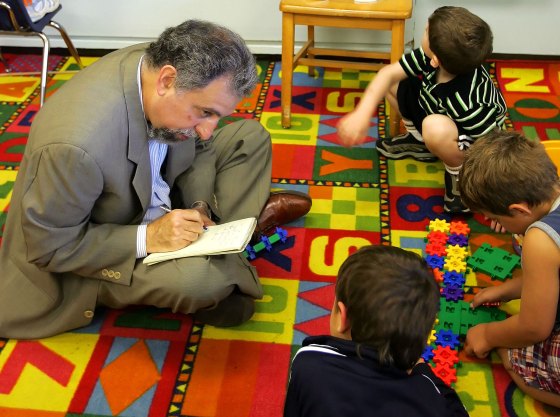
Alan Finder wore many hats during his three decades at the New York Times. As both a reporter and editor, he covered New York City government, international news, sports, higher education, labor, transportation and much more.
But no matter the subject, Finder approached his stories with the same even-keeled work ethic and attention to detail. He challenged power structures and gave voice to the disenfranchised; he was beloved by colleagues and served as an essential mentor to several generations of budding journalists. He died at 72 on March 24 after battling coronavirus for several weeks.
On Twitter, Times editor and reporter Richard Perez-Pena called him “the greatest colleague I’ve ever had and one of the best people I’ve known” and also noted that “Alan was a font of sanity, decency, wisdom, humor and calm in a crazy, often harsh business.”
Finder was born in 1948 in Brooklyn and started his career as a local cub reporter for the Bergen Record in Hackensack, N.J. After a four-year stint at Newsday he joined the Times in 1983, where he distinguished himself for his diligent approach to covering highly technical and corruption-plagued realms like housing, labor and transportation.
When Joan Nassivera arrived at the newspaper in 1988 as an editor, the first story she edited was one of Finder’s. “He understood who pulled the wheels of power and how these people intersected—and could explain it all to the average reader and make it interesting,” she said. “He treated editors as equals or better, even though he didn’t really need any help.”
In 1994, his reporting deflated New York City’s claim that it was giving more city contracts to women- and minority-owned companies. The next year, he uncovered the grotesque practices of New York City’s sweatshops, writing about 12-hour-days and fire doors sealed shut by large padlocks.
Over the next decade-plus, Finder would prove his flexibility, serving as a sports editor, then an education reporter, then an editor on the international desk. He took many journalists under his wing, offering them invaluable advice or just an open ear.
“He was a guy who people looked to for guidance and for help,” said Patrick McGeehan, a New York Times reporter who called Finder a friend and colleague for more than a decade. “It was not at all uncommon to see him huddled with someone, talking very quietly.”
When Finder died he was still working editing shifts at the Times, but was spending more time with his wife Elaine, daughter Lauren, and son Jacob. “He didn’t take himself seriously, and he took his job seriously enough to be one of my two favorite editors ever,” Nassivera said. “But what he did take seriously was his family.” —Andrew R. Chow
Andrew Jack
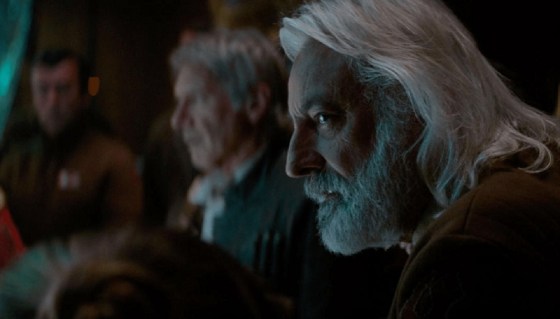
If you’ve ever wondered why Batman, James Bond, Rey Skywalker and Bilbo Baggins talk the way they do, the answer can be traced back to one man: Andrew Jack. Over a three-decade career, the dialogue coach worked on more than 80 movies, including some of the biggest franchises in film history, from Star Wars to Lord of the Rings to Avengers.
Jack helped Robert Downey Jr., a New Yorker, master Sherlock Holmes’ brusque London accent. He transformed Chris Hemsworth’s Australian drawl into Thor’s Asgardian intonations. He was instrumental in creating the many strange languages and dialects of J.R.R. Tolkein’s Middle Earth, from elvish to Black Speech to the Hobbit’s Gloucestershire-based lilt. And with his flowing white hair and towering figure, he also secured a role as Major Caluan Ematt in Star Wars episodes VII and VIII.
On March 31, Jack died at 76 from complications from the coronavirus. “He was in no pain, and he slipped away peacefully knowing that his family were all ‘with’ him,” his wife, Gabrielle Rogers, tweeted.
Born in 1944, Jack began his career as an actor, with his voice serving as his main talent: He did radio broadcasting for the BBC and overdubbed lines in films.
In the ‘70s, his acting gigs ran dry and he became a flight attendant. “I flew around the world and suddenly discovered I was learning all these accents,” he said in a 2009 interview. He got a job teaching voice and dialect at The London Academy of Music and Dramatic Art for many years before securing his first major dialect coaching gig, on 1989’s Indiana Jones and the Last Crusade.
Over the last two decades, Jack was in high demand, working on some of the biggest projects in Hollywood. In addition to helping Pierce Brosnan become James Bond and Christian Bale become Batman, he taught Greek and Trojan accents on 2004’s Troy, and became a crucial part of the fabric of the Avengers and Star Wars franchises. Just a few weeks before his death, he finished working on the upcoming film The Batman starring Robert Pattinson.
In an Instagram post, the Star Wars actor John Boyega paid tribute to Jack, calling him “one of the most supportive people in our industry” and “a nurturer on set and the kind of person that was always up for an uplifting conversation.” —Andrew R. Chow
Terrence McNally
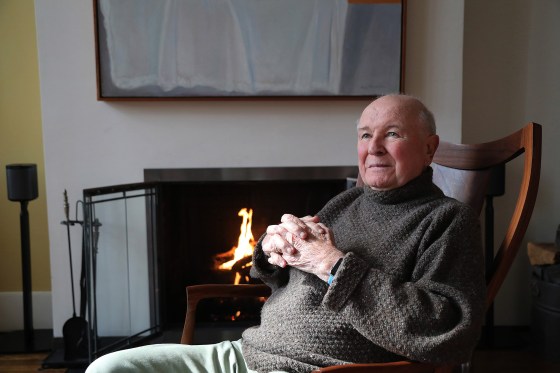
After writing and delivering so many heartfelt tributes over the years to my dear friend, the great playwright Terrence McNally, I have felt at a crippling loss for words when it comes to his recent passing due to the coronavirus.
I have just felt gutted and heartbroken. Fortunately for all of us, he was never at a loss and always knew what to say and how to say it. That was his genius.
It’s not easy to have a biting wit while wearing your heart on your sleeve, but it was a magic trick he perfected like no one else. And somehow, in spite of all of the difficulties and stresses of being in the theater, he maintained a childlike innocence and excitement about it all.
There are countless stories, just like mine, of young artists he has supported and mentored and given their first chance. He was a huge hero to the LGBTQ community, a groundbreaker and openly gay activist and writer way before it became fashionable, while he was also able to consistently reinvent himself in the theater, prolifically playing with new forms and telling us challenging stories of people trying to connect, to matter, in love and art.
It has been very gratifying to see the enormous outpouring of love and respect for Terrence and his incredible body of work over the last week. He would be very pleased and touched. As Maria Callas says at the end of Master Class, “The older I get, the less I know, but I’m certain that what we do matters. If I didn’t believe that…”
Believe me, Terrence mattered. A lot. —Nathan Lane
———-
Lane is an Emmy- and Tony-winning actor.
Maria Mercader
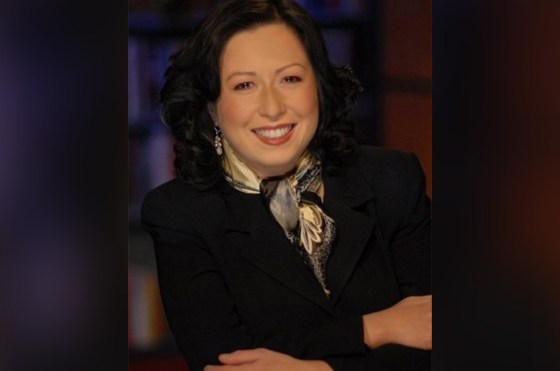
“To be interesting, you must be interested.” That was the quote Maria Mercader chose to post in her Twitter biography, one that speaks to her lifelong dedication to journalism, an industry for the curious and empathetic.
Mercader, a native of New York City, started her career as a page at CBS News in 1987 and went on to work as a producer and talent executive at the company. She died March 29 at age 54 after contracting the coronavirus, CBS said. The company noted that Mercader had battled cancer and related illnesses for 20 years and “was an inspiration each time she returned to work after a setback threatened to end her life.” She was a proud survivor.
Colleagues remembered Mercader as warm, loyal and conscientious, as well as a woman of “indomitable spirit.” Longtime news anchor Dan Rather called her a “paragon of grit and grace” and described her legacy as widespread education: because of her efforts to report the news for nearly three decades, Americans learned about the world.
Mercader covered breaking news events that defined whole decades, including the death of Princess Diana and the 9/11 terrorist attacks. She won a business and financial reporting Emmy in 2004 for producing a story about computer spam; it was one of two nominations she earned that year. Later in her career, she worked on diversity-focused efforts for the company.
“We would joke that I’d survived one type of cancer and she’d survived all the others. And now we’ve lost her to this hideous virus,” CBS News National Correspondent Manuel Bojorquez tweeted on March 29. He offered condolences to her family and said the beloved colleague was “as inspiring and lovely as any human being could be.” —Katy Steinmetz
Dez-Ann Romain
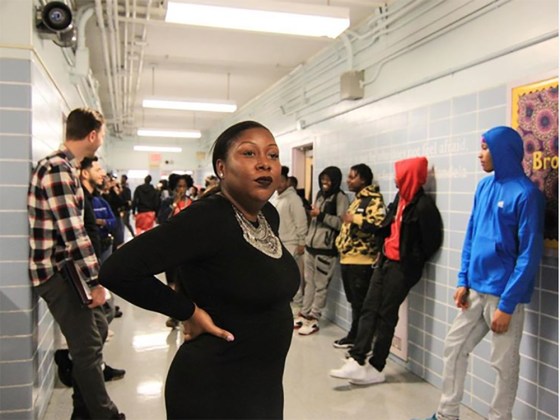
When you graduated from Dez-Ann Romain’s class she didn’t leave your life, she became your friend.
“She supported us through all our future endeavors, personal or professional,” former student Curtis Turney-Rentas, 27, tells TIME. “She taught us how to become men and women … how to be leaders in our own light.”
Romain died last month from complications related to coronavirus. She was just 36, and worked as principal of the Brooklyn Democracy Academy in Brownsville, Brooklyn, a transfer high school that aims to help students who struggled in traditional high school settings graduate and move on to postsecondary education or employment.
She was the first New York City public school staff member confirmed to have died from COVID-19.
Romain was born in Trinidad and Tobago and immigrated to the U.S. at a young age. During an online vigil, Romain’s friends recalled how she often spoke about her early struggles as an immigrant, knowing her personal story encouraged the many immigrant students in her community.
Janice Lawrence-Clarke, a former substitute teacher at Brooklyn Democracy Academy, also recalls how Romain would play music in the hallways every Friday when school let out, including traditional Trinidadian soca music.
“She had a huge heart. She loved her kids, she loved to teach,” Tia Brunner, 30, another of Romain’s former students — and now a teaching assistant herself — tells TIME. “She made us feel like family. I felt like one of her sisters … She was amazing and beautiful, inside and out.”
“Her work was dedicated to uplifting students,” Brooklyn Borough President Eric Adams said in a statement provided to TIME. “Too many in our society have written off the young scholars under her stewardship, but where others saw problems she saw promise and potential … The loss of Principal Romain is particularly painful for the Brooklyn Democracy Academy family, our larger public school community, and a borough grateful for her service.”
Romain is survived by her sister Delicia, who noted during the vigil that Romain’s loved ones were “celebrating rather than mourning the exuberance and personality that was Dez-Ann Romain.” —Madeleine Carlisle
Dr. Alfa Sa’adu
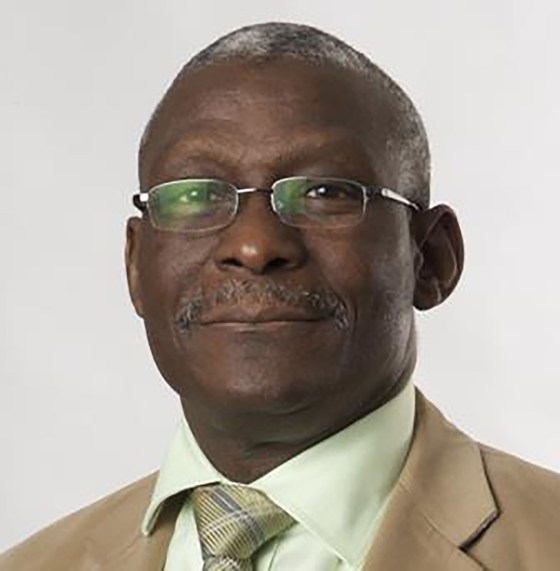
Even in the autumn of his life, Dr. Alfa Sa’adu could not keep himself away from the profession that was also his passion.
And when he retired in 2017, after 40 years of service, Sa’adu kept volunteering one day a week at a hospital near his home in London. “He just could not fully retire,” his son, Dani, told the BBC. “He just loved medicine so much.”
In March, as Britain began to shut down in response to the novel coronavirus that was already ravaging other parts of the world, Sa’adu kept volunteering at Queen Victoria Memorial Hospital part-time, doing crucial work behind the front lines to prepare Britain’s healthcare system for the inevitable surge.
He did not know he would be part of it. Even so, when he first came down with symptoms, his impulse was to prioritize public health over his own and he resisted his family’s urging to go to the hospital as a patient. “[He] did not want to take up a hospital bed,” Dani said, “because others would need it.” By the time he finally relented, it was too late. He died on Mar. 31 at age 68, becoming one of several British medical professionals who died of COVID-19.
Born in Nigeria, Dr. Sa’adu moved to the U.K. to complete his medical training and would spend the rest of his life committed to Britain’s National Health Service, the taxpayer-funded healthcare system that provides every Briton with free-at-point-of-use treatment. He eventually became one of the most senior ethnic minority medical professionals in the country, serving as the Associate Medical Director at a large hospital in east London just before his retirement.
But he also kept ties with his birth country. He served as chairman of Kwasang U.K., an association representing the diaspora community from the state of Kwara in Nigeria, and he was reportedly regarded as a community leader in Pategi, the town where he grew up. He leaves behind a wife, two sons, and grandchildren.
His legacy, fittingly, was one of public health, and his family hopes the circumstances of his death will help educate others. “People really need to take this seriously,” Dani told Sky News. “This is not a joke.” —Billy Perrigo
Adam Schlesinger
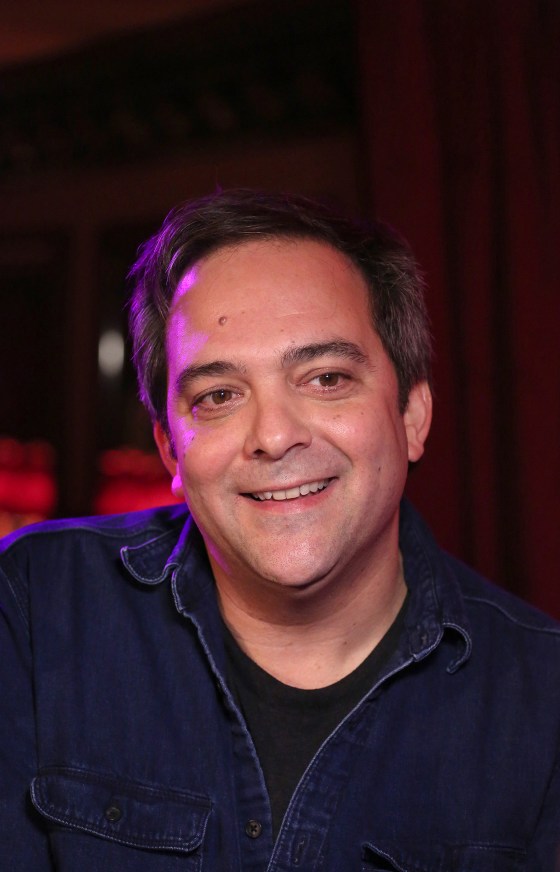
Some pop songs, even great ones, feel built from components: The right chord progression, a clever lyric that appeared in a burst of inspiration. But the songs written or co-written by Adam Schlesinger—for movies like That Thing You Do! and Music and Lyrics, for TV’s Crazy Ex-Girlfriend, for the bands he was part of, including Fountains of Wayne and Ivy—always felt as if they’d been grown, not built, from the inside out. They changed shape as you listened to them, like flowers turning to the light; they could fill you with joy, but they often held within their petals just a hint of melancholy, that last-day-of-summer feeling that reminds you how precious it all is. Schlesinger, who died on April 1 at age 52, made his name in the age of the CD, but his songs resonate with the spirit of transistor radio, capturing the anticipation of waiting to hear a song you love, rather than choosing it from a Spotify playlist.
Fountains of Wayne, the band Schlesinger formed with his frequent collaborator Chris Collingwood in 1995, did score a modest radio hit with the 2003 “Stacy’s Mom,” an ode to the charisma of older women. But the band’s work overall is a treasure trove of songs that are both clever and heartfelt, often ringing with internal rhymes but never at the expense of pure emotion. Schlesinger wrote songs filled with tenderness and question marks, from the power-pop moxie of “Red Dragon Tattoo,” the anxious hamster-wheeling of a man who’s just about to prove his love by getting major ink, to intimate observations of everyday life like “Sick Day,” a ballad about young women making the trek into Manhattan from Jersey or the outer boroughs, moving fast through their lives even as they still feel they’re waiting for them to begin. (It includes the line “Lead us not into Penn Station,” a miniature miracle of songcraft.)
Schlesinger knew the power of a great pop song, and he poured all of that knowledge, all of that cotton-candy feeling, into the fake hit he wrote for a fake band, the title track to Tom Hanks’s 1996 That Thing You Do! In the movie, the song becomes a major hit for a bunch of kids who just happen to have formed a band. (They’re called The Wonders; the “One-Hit” is implied.) In the movie, “That Thing You Do” pours out of radios everywhere, and when people hear it, they stop short, they start dancing, they pick up on the lyrics and start singing along. “That Thing You Do” is inherently an inside joke, the super-catchy hit every songwriter wishes he could write. Yet it isn’t parody; it’s pure love, as if every Beatles or Kinks or Bacharach-David song Schlesinger ever heard had been filtered through his ears, through his brain, and then handed to us on a gleaming, spinning 45. That was Schlesinger’s genius: he held pop-music history for safekeeping by reweaving its threads into new and splendid and lasting pleasures. It’s got a backbeat, you can’t lose it. — Stephanie Zacharek
View original article
Contributor: TIME Staff

